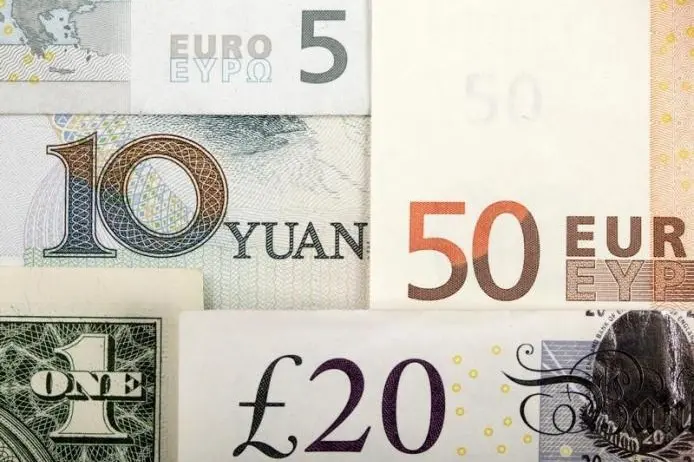PHOTO
SINGAPORE: The pound languished near a record low on Wednesday on lingering concerns over Britain's radical tax cuts to spur growth, while the dollar edged up after Treasury yields surged overnight.
Sterling fell 0.4% to $1.0693 in early Asia, following a slight 0.4% gain in the previous session, still nursing deep losses after its slide to an all-time low of $1.0327 at the start of the week.
Bank of England Chief Economist Huw Pill said overnight that the central bank is likely to deliver a "significant policy response" to finance minister Kwasi Kwarteng's huge tax cuts.
But he added that the central bank wants to wait until its next scheduled meeting in November before making its move, quashing market speculations of a potential inter-meeting interest rate hike.
"Any comments on the Bank of England's policy path from here as well as the UK fiscal plan will definitely be closely watched, but for the near-term I think sterling's going to remain pretty weak from here," said Carol Kong, senior associate for international economics and currency strategy at the Commonwealth Bank of Australia.
"It's basically a crisis of confidence. It'll be up to the UK government to resolve this ... rather than Bank of England."
Meanwhile, the dollar stood near a two-decade high against a basket of currencies, as the U.S. dollar index gained 0.18% to 114.35, close to its top of 114.58 hit on Monday.
Benchmark U.S. 10-year Treasury yields and the 30-year yields rose to new milestones overnight, after Federal Reserve officials reiterated the central bank's hawkish stance.
"The dollar strength has really exceeded a lot of forecasters' expectations for this year, and is likely to remain higher for longer," said Kong.
Euro fell 0.2% to $0.95735, while the Aussie was down 0.1% to $0.6428.
The kiwi fell to a new 2-1/2-year low at $0.56165.
In the latest flare-up in the euro zone's gas crisis and an escalation of geopolitical tension, Europe was on Tuesday investigating what Germany, Denmark and Sweden said were attacks which had caused major leaks into the Baltic Sea from two Russian gas pipelines at the centre of an energy standoff.
In Asia, the Japanese yen stood uncomfortably close to a 24-year trough at 144.79 per dollar following the surge in U.S. Treasury yields overnight, as the dollar-yen pair tends to track the long-term yield spread between U.S. and Japanese government bonds. It has been little helped by an intervention from Japan to prop up the fragile currency last week.
"What would really change the value of the yen will be if the BOJ gives up or resets their yield curve control policy," said Pablo Calderini, chief investment officer at hedge fund Graham Capital.
"As long as you keep a rate differential of 4%, it will be really hard to see a significant appreciation of the yen."
(Reporting by Rae Wee; editing by Richard Pullin)





















